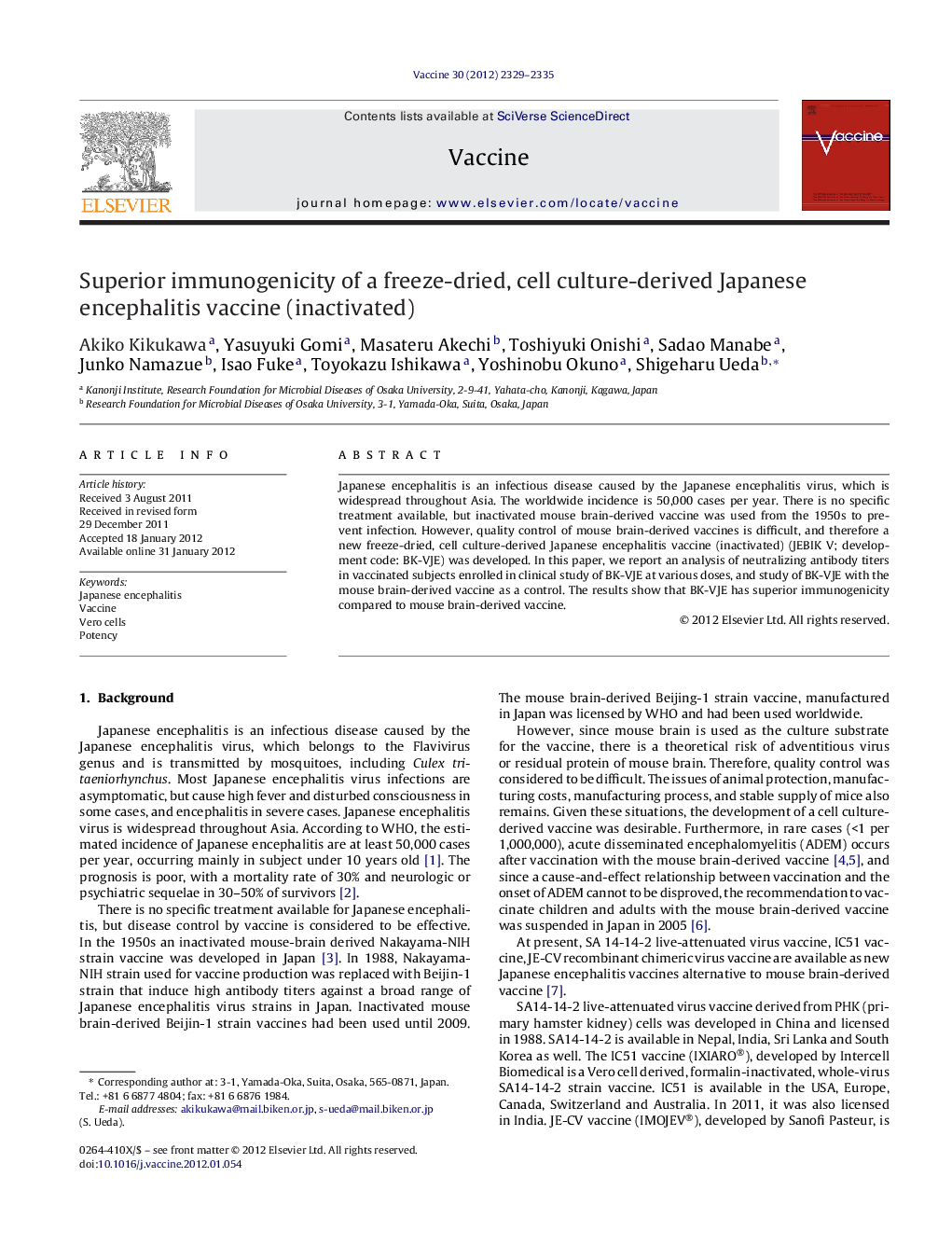| کد مقاله | کد نشریه | سال انتشار | مقاله انگلیسی | نسخه تمام متن |
|---|---|---|---|---|
| 2402801 | 1102853 | 2012 | 7 صفحه PDF | دانلود رایگان |

Japanese encephalitis is an infectious disease caused by the Japanese encephalitis virus, which is widespread throughout Asia. The worldwide incidence is 50,000 cases per year. There is no specific treatment available, but inactivated mouse brain-derived vaccine was used from the 1950s to prevent infection. However, quality control of mouse brain-derived vaccines is difficult, and therefore a new freeze-dried, cell culture-derived Japanese encephalitis vaccine (inactivated) (JEBIK V; development code: BK-VJE) was developed. In this paper, we report an analysis of neutralizing antibody titers in vaccinated subjects enrolled in clinical study of BK-VJE at various doses, and study of BK-VJE with the mouse brain-derived vaccine as a control. The results show that BK-VJE has superior immunogenicity compared to mouse brain-derived vaccine.
► We report an analysis of neutralizing antibody titers in vaccinated subjects of cell culture-derived Japanese encephalitis vaccine.
► We analyzed the relationship between the vaccine potency and neutralizing antibody titer in human.
► Data for the mouse brain-derived vaccine are used as a control.
► The cell culture-derived vaccine has superior immunogenicity compared to mouse brain-derived vaccine.
Journal: Vaccine - Volume 30, Issue 13, 16 March 2012, Pages 2329–2335